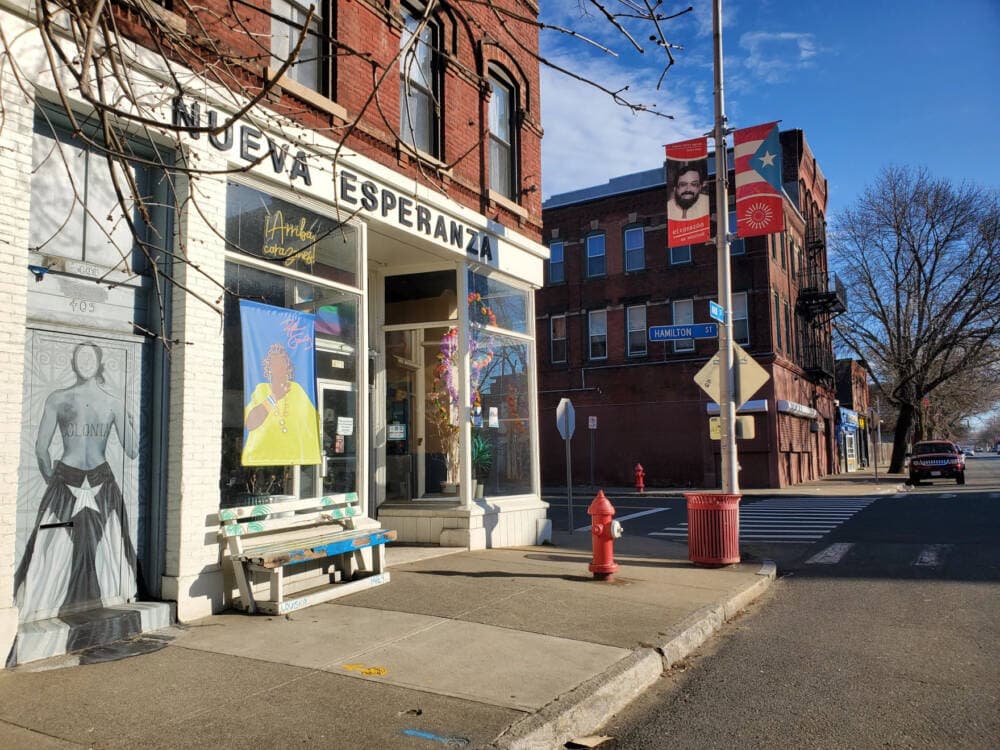Advertisement
Gov. Healey's Latino Council has only 1 member representing western Massachusetts

Massachusetts Gov. Maura Healey recently announced the list of people who will serve on her Council on Latino Empowerment. While there are Latinos from many organizations and industries represented, one part of the state seemed to be left behind.
State Rep. Carlos Gonzalez, D-Springfield, quickly scanned the list on Tuesday and found it was lacking.
"I was hoping that we had a little bit more representation from western Massachusetts," he said. "We have one of the highest Latino demographic groups. So I just thought that it would be vital for the community to have more representation in this Latino group that's going to be advising the governor."
The released list consists of 37 names and only one person — Samalid Hogan, CEO of Greylock Management Consulting in Holyoke — works and lives in western Massachusetts.
Grace Moreno, executive director of the Boston-based Massachusetts LGBT Chamber of Commerce, started a branch of the agency in Easthampton.
A Healey spokesperson, Karissa Hand, confirmed that only Hogan lives in the area.
"Our administration is proud to have Western Mass representation across all councils and commissions, including the Latino Empowerment Council," Hand said, when asked about the lack of western Massachusetts representation. "We will also continue to welcome new members to this council."
There are about 883,000 Latinos in Massachusetts, making up 12.8% of the state population, according to the U.S. Census Bureau.
The cities and towns with the highest concentrations of Latinos include Lawrence with 82.3%; Chelsea with 66.1%; Holyoke with 53.4%; and Springfield with 47.5%.
More than 16% of the state's Latinos live in the four western counties, but western Massachusetts representation on the statewide council is below 3%.
Gonzalez, who sits on the state's Black and Latino Legislative Caucus, said he reached out to Healey's team to see if they needed recommendations from the area.
"I didn't get a response back. I just think we need to ... make sure that the Latino community in western Massachusetts, which is a vital and important part of the state's diversity, have their voices heard," he said.
Hogan attended her first meeting of the council on Wednesday in Boston. She said she was surprised to see she was the only one from the western part of the state.
"Geographically, I didn't see anyone from this side, from western Mass.," she said.
However, she was happy to see a wide range of ethnic backgrounds and fields of expertise.
"There is a lot of diversity in the group in the sense that you have nonprofits and people that are representing private [companies] and then there are foundations and people with diverse backgrounds from Puerto Rico, Mexico and other different countries. And they've been living here for a long time," she said.
Hogan also served on former Gov. Charlie Baker's Latino Advisory Commission, and said there was more representation on that board, making her question why that was not the case this time. That commission was much smaller with only 28 members and had at last three members representing western Massachusetts.
"I'm not sure why. I don't know if maybe they asked and people said no, because it is a difficult thing to ask someone to commit to four years of unpaid work," she said.
Despite her role as the sole representative of western Massachusetts, Hogan said she is excited about the work the group will undertake.
She said the previous commission's role was to gather information through listening sessions across the state.
This new council, Hogan said, is ready to implement changes.
"What's really great about the council now is that we're sort of done planning. Let's look back at any of the recommendations and anything ... that didn't get done and actually start picking things that we can implement," she said.
This story is a production of the New England News Collaborative. It was originally published by New England Public Media.